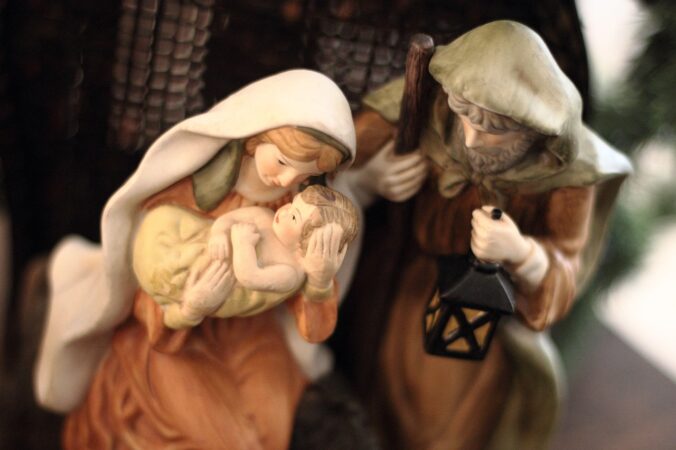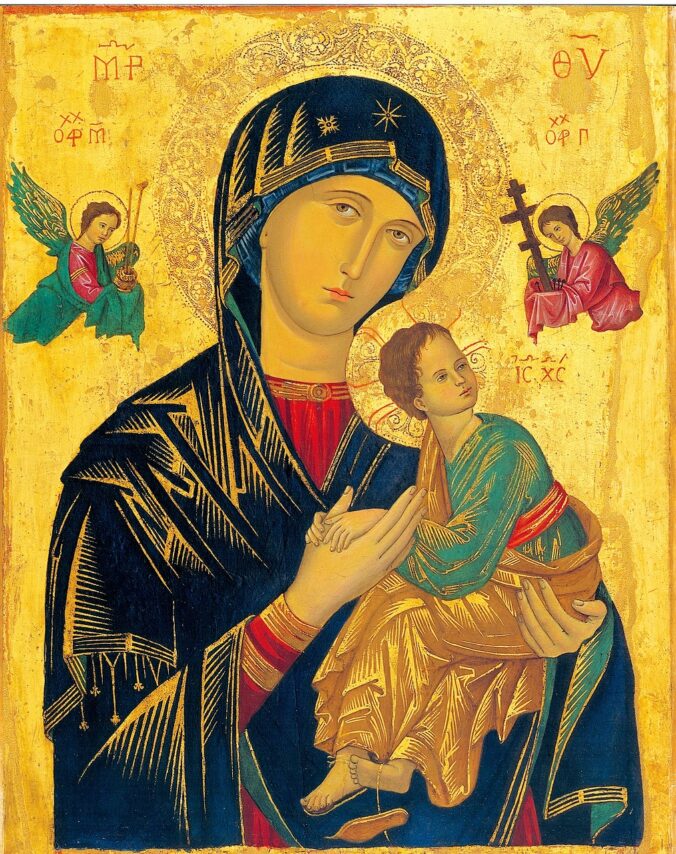As the Advent season approaches — the Christian season encompassing the four Sundays (and weekdays) leading up to the celebration of Christmas — we have the opportunity to reflect on the birth of Jesus and on His promise that He will return one day:
“‘Immediately after the tribulation … then will appear the sign of the Son of man in heaven, and then all the tribes of the earth will mourn, and they will see the Son of man coming on the clouds of heaven with power and great glory.'” Matthew 24: 29-30
The tribulation is the time of chaos and distress and persecution of God’s people that will precede Jesus’ second coming. (2 Thessalonians 2: 1-4)
Jesus tells us that when He returns, He will return with the angels:
“‘And He will send out His angels with a loud trumpet call, and they will gather His elect from the four winds, from one end of heaven to the other.'” Matthew 24: 31
This verse from Matthew is one of many verses throughout the Bible that confirm these mysterious and powerful spiritual beings belong to Jesus. These ministering and protective and majestic creatures are His angels. The excerpt below from the Catechism of the Catholic Church describes this beautifully:
“They (the angels) belong to Him because they were created through and for Him: ‘for in Him all things were created in heaven and on earth, visible and invisible, whether thrones or dominions or principalities or authorities — all things were created through Him and for Him.’ (Colossians 1: 16) They belong to Him still more because He has made them messengers of His saving plan: ‘Are they not all ministering spirits sent forth to serve, for the sake of those who are to obtain salvation?’ (Hebrews 1: 14).” CCC 331
The angels were with Him in the beginning. The Book of Genesis tells us that just as He created man, God also created the angels:
“Thus the heavens and the earth were finished, and all the [heavenly] host of them [the angels]. And on the seventh day, God finished His work which He had done, and He rested on the seventh day from all his work which He had done.” Genesis 2:1-2
While both the angels and man were created by God, the angels serve as intermediaries between God and man, because God “has made him [man] a little less than the angels.” (Psalm 8: 5) And Jesus, God “has crowned with glory and honor.” (Psalm 8: 5)
As we prepare to celebrate the birth of Christ, I can’t help but think about all the times in the New Testament that we see the angels accompanying Jesus. To share a few examples — the angel Gabriel announces to Mary that she will conceive a son, through the power of the Holy Spirit, and that this child, whose name shall be Jesus, is the Son of God. (Luke 1: 26-38).
An angel of the Lord appears to Joseph, in a dream. When Joseph, who is betrothed to Mary, finds out that she is with child, he resolves to send her away quietly, as the child is not his. But the angel tells Joseph not to be afraid to take Mary into his home, because the child she carries is conceived of the Holy Spirit. The angel confirms that this child, who shall be named Jesus, will save humanity from its sins. (Matthew 1: 18-25)
The angels announce the good news and great joy of Jesus’ birth to the shepherds. (Luke 2: 8-14) And an angel appears again to Joseph in a dream, telling him to flee with Mary and the baby Jesus to Egypt, to avoid King Herod’s purge of all male babies under the age of two. (Matthew 2: 13-18)
The angels minister to Jesus following his 40 days of temptation in the desert (Matthew 4: 11); and an angel appears to Jesus to strengthen Him, as He prays in the Garden of Gethsemane before His crucifixion (Matthew 22: 43). The angels are with Jesus at His resurrection from the dead (John 21: 11-13). And as Jesus ascends into Heaven, two angels address the apostles gathered there:
“And while they were gazing into heaven as He (Jesus) went, behold, two men stood by them in white robes, and said, ‘Men of Galilee, why do you stand looking into heaven? This Jesus, who was taken up from you into heaven, will come in the same way as you saw Him go into heaven.'” (Acts 1: 10-11)
Every story, every verse, every single word in the Bible is intentional and inspired by the Holy Spirit, to help us to know and to draw nearer to God.
God’s creation of the angels as intermediaries between man and Himself is a remarkable demonstration of His love for us. We have God’s holy angels offering us their protection and guidance as we seek to know and trust in the Lord:
“For He will command His angels concerning you to guard you in all your ways; they will lift you up in their hands, so that you will not strike your foot against a stone.” Psalm 91: 11-12
The presence of the angels with Jesus — in both his human and Divine form — is equally remarkable, offering us undeniable proof of the power of the holy angels to lead us in good and holy lives. For Jesus says to us, “‘Take My yoke upon you and learn from Me.'” (Matthew 11: 29)
In saying “take My yoke,” Jesus asks us to study His life through Holy Scripture. He asks all of us to think about the way He lived, and to learn from Him. One of the many, many lessons Jesus offers to us is the role of God’s holy angels in serving as powerful intermediaries for us.
With Christmas drawing near, this is the perfect time to reflect on the role that the holy angels play in Jesus’ life — and in the lives of all who believe and want to draw closer to God.
The holy angels belong to Jesus.
Jesus desires that we may have abundant life. (John 10: 10) He wants us to have abundant life with Him right now, here on earth — and throughout eternity.
Jesus loves us so much. We can trust in His promises. It is because of Jesus’ great love that we have His holy angels to guide us to the lives of goodness and joy and love that he prepares for each one of us.
“Behold, I send an angel before you, to guard you on the way and to bring you to the place which I have prepared for you.” Exodus 23: 20










Recent Comments